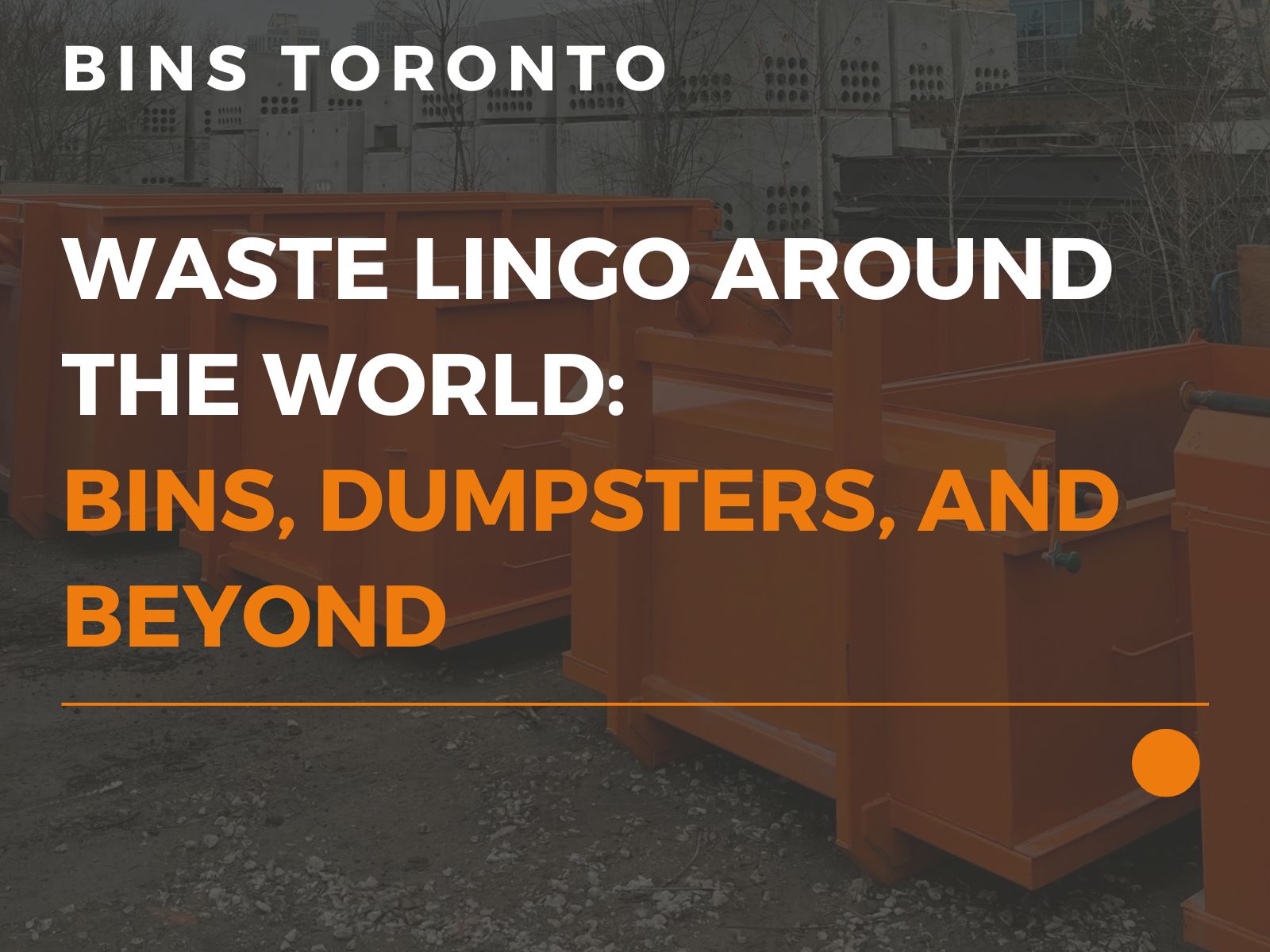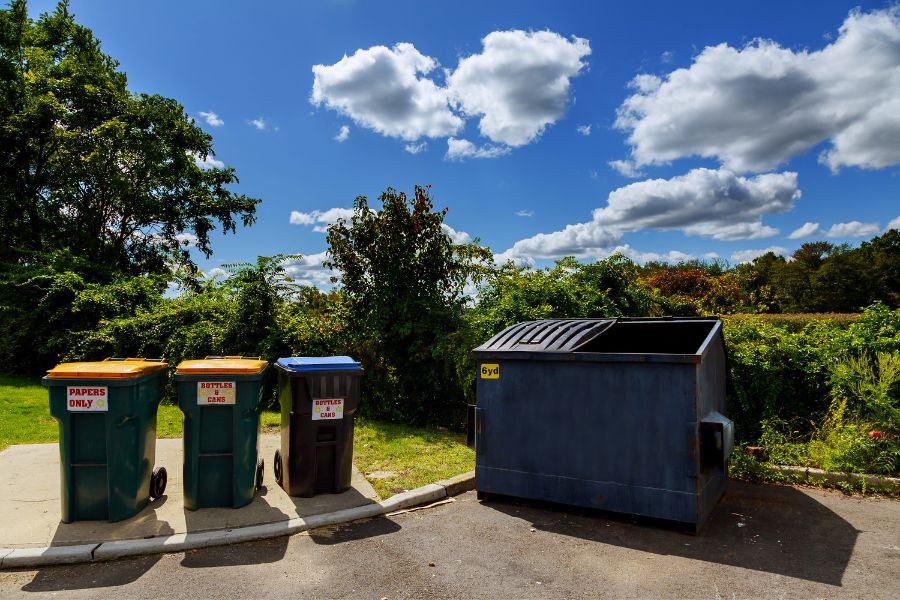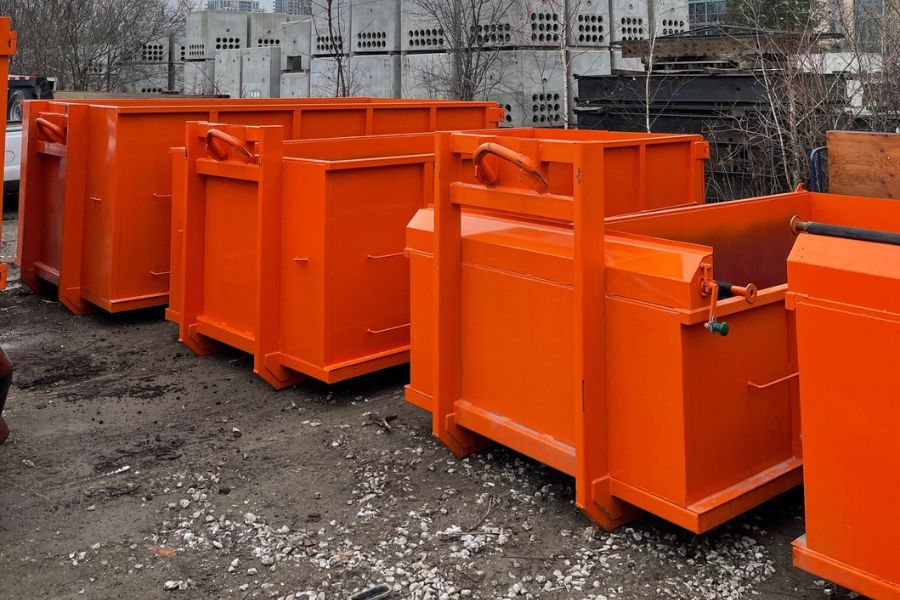

Premier Bin rental Service in Toronto and the GTA

May 14, 2024
We’re taking a close look at the words used worldwide when renting renovation waste dumpsters. Our journey leads us from busy North American cities to the lively streets of Asia. Everywhere we go, we find a variety of terms that show different cultures and waste-handling methods.
Learning these words helps us see the global work to handle waste better. It also shows how words can influence how we think about caring for our planet.
In this look at global waste management, we explore how countries handle their trash. We see the various methods used, from bustling European cities to growing Asian urban areas. Good waste management is key for a planet that can keep growing without harm.
The key players in managing waste are recycling, composting, and turning waste into energy. These methods cut down on trash going to dumps. They also help look at trash as something that can be used again.
But, there are many problems in waste management we need to work on. Things like insufficient money, not enough support from leaders, and not enough people knowing about the issue slow down the work. These all affect how well waste is handled.
Even with these problems, the world keeps getting better at managing waste. By sharing what works best between countries, everyone can get better at keeping the planet clean. That way, we all work towards a better future for the earth.
By staying focused on better waste management, we hope to see less trash, more reuse of materials, and more care for our planet.
We’re going to look at how different countries name their waste containers. It’s pretty interesting to see the terms they each use. This journey helps us see how cultures and languages influence how we deal with waste worldwide.
In North America, particularly in the United States and Canada, the term “dumpster” is widely used to refer to large, steel containers used for waste disposal. These containers are typically found in various sizes, from small ones used for residential purposes to larger ones commonly seen at commercial and industrial sites. However, within Canada, especially in Toronto and other parts of Ontario, the term “bin” is also commonly used interchangeably with “dumpster.” This reflects the diverse linguistic influences in the region, where both American and British English terms are often used.
Heading across the Atlantic to the United Kingdom and Australia, the term “bin” is predominantly used to describe containers for waste collection, regardless of size. In the UK, these containers can range from small household bins to larger communal bins found in residential areas. Meanwhile, in Australia, the term “skip bin” is frequently used, particularly for larger containers used in construction and renovation projects. The term “skip” is derived from the action of “skipping” or removing waste, reflecting the practicality and efficiency of these containers in waste management practices.
In European countries such as Germany and France, variations of the term “container” are often used to describe similar large waste receptacles. In German, for example, the term “Müllcontainer” is commonly used, while in French, “conteneur” is the equivalent term. These containers serve similar purposes to dumpsters or bins in other parts of the world, providing centralized locations for waste disposal in urban and suburban areas.
Moving to Asia, particularly in countries like Japan and South Korea, the concept of waste disposal is approached with meticulous organization and efficiency. While the term “dumpster” may not be commonly used, large waste containers are prevalent, known by various names such as “gomi-bako” in Japanese or “sudong” in Korean. These containers are often colour-coded and strictly regulated to ensure proper waste separation and disposal, reflecting the cultural emphasis on cleanliness and environmental responsibility.
Overall, while the terminology may vary from region to region, the purpose of these large waste containers remains consistent: to provide efficient and organized means of waste disposal for communities around the world. Below are a few other commonly used terms for garbage bins around the world:

We’ll explore how different waste trucks work. This includes garbage trucks and special trucks like vacuum trucks. They all play key parts in getting rid of waste across the planet.
Garbage trucks are vital for picking up waste in our neighbourhoods. They have compactors that squash waste to make more room. This lets them gather a lot of waste before it’s taken to be buried or turned into something new.
Vacuum trucks do a special job in waste management. They can suck up liquid waste and thick sludge. These trucks are very important for cleaning up sewers and handling dangerous waste spills.
Sustainability is a key part of responsible waste handling in our communities. We look at new ways to recycle, compost, and deal with e-waste. These methods help make our world greener and bring fresh ideas into how we cut down on waste.
Innovation is the heart of making these changes work. Using new tech and ideas helps us clean up our act. This way, we make sure our methods for recycling, composting, and managing e-waste stay up to date with the latest. It’s how we make a better, greener world for everyone.
Waste management plays a key role in keeping our communities healthy and our planet safe for our kids and their kids. It’s all about making choices that use our resources wisely and lessen our damage to the earth.
Using sustainable ways to handle waste helps big time. It cuts down on how much harm we do to the planet. This means less trash, less need for new materials, and more care for the environment.
Green rules and incentives are super important. They make sure we all choose ways to get rid of our waste that isn’t harmful. This pushes both people and companies to think more about the environment.
Biodegradable things are a big step in cutting waste. They naturally go back to the earth without hurting it. This makes our trash less of a problem and more like a useful part of nature.
Choosing the green route in our waste habits helps build a better, cleaner world. It’s up to all of us to go for methods that keep our planet’s health in check, now and in the future.

We’re exploring how waste collection has changed over time. We’ll look at how old ways of doing things have shifted to modern approaches. This change has made waste pickers more important in the recycling world. It has also affected how we recycle and how the economy works, especially the informal sector.
Waste pickers have gone from being on the sidelines to playing a key role. They were once people on the fringes of society. Today, they are at the heart of making our environment better. Because of them, we have more organized systems to manage waste and recycle.
It’s important to see the financial side of what waste pickers do. They work outside the usual economic rules, yet their job is crucial. They help save money that would have gone into managing waste by gathering valuable resources. Their group is made up of people from all walks of life, adding a variety of skills to the mix.
Recycling in the informal sector does face tough times. Things like not having enough resources or being underappreciated are big hurdles. But, there have also been big wins. The ways waste pickers have been found to work have not just helped the planet. They also offer paths to help the local economy grow.
Our investigation into global waste management practices has underscored the critical role effective waste handling plays in safeguarding our planet. From examining diverse cultural approaches to delving into sophisticated methodologies, our exploration has shown the significant effort dedicated to this endeavour. Waste management is a shared responsibility, extending from individuals to large-scale organizations, all contributing to the preservation of environmental integrity.
Myriad waste disposal methods exist, ranging from basic bin systems to advanced waste collection vehicles. Each approach plays a vital role in maintaining environmental safety and cleanliness. Regardless of geographical location, the importance of sound waste management practices remains paramount. As we conclude our journey, we encourage reflection on personal contributions to this cause. Every small action, whether it’s recycling or educating others, holds significance in our collective efforts.
Let’s honour our commitment to improved waste management and environmental stewardship. Together, we possess the power to effect meaningful change. By fostering a culture of mutual learning and collaboration, we can enhance our capacity to responsibly manage waste. Let’s unite in our mission to create a cleaner, safer, and more aesthetically pleasing world for all inhabitants.
As a trusted dumpster bin rental company serving the Greater Toronto Area, we stand ready to offer our professional services for all your waste disposal needs. With our expertise and comprehensive range of solutions, we provide a reliable and efficient means of managing various types of waste. Whether you’re undertaking a residential cleanup, commercial renovation, or construction project, our rental bins are tailored to accommodate your specific requirements. Choose us as your partner in waste management, and rest assured that your waste will be handled responsibly and professionally. Contact us today to discover how we can streamline your waste disposal process and contribute to a cleaner, more sustainable environment